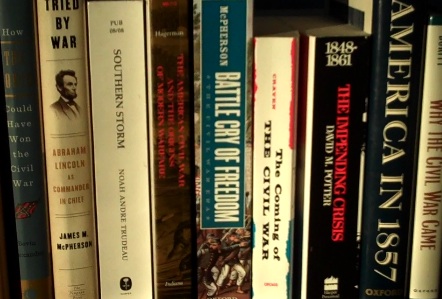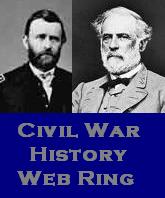Archive for December 21st, 2007
On Historiography and Roman Civil War
 I mentioned in an earlier post that I’m taking a course in Historiography this term. I’m heavily into Ernst Breisach’s Historiography: Ancient, Medieval, and Modern.
I mentioned in an earlier post that I’m taking a course in Historiography this term. I’m heavily into Ernst Breisach’s Historiography: Ancient, Medieval, and Modern. So far, the focus has been on the emergence of Greek and Roman historiography and I have a small essay contrasting the two due this weekend. This is the kind of reading that “wets your whistle” (do people still say that?). We are given a glimpse of the broad picture – a sweeping brush across the centuries before the birth of Christ as men began slowly to understand the value of recorded history and commentary. But we are also introduced to bits of information that are hard to not pursue further. Case in point – a Roman civil war that occurred between 88 and 82 B.C. It was fought between the populares (“favoring people”) under Gaius Marius and the optimates (“the best of men”) under Lucius Cornelius Sulla.i
So far, the focus has been on the emergence of Greek and Roman historiography and I have a small essay contrasting the two due this weekend. This is the kind of reading that “wets your whistle” (do people still say that?). We are given a glimpse of the broad picture – a sweeping brush across the centuries before the birth of Christ as men began slowly to understand the value of recorded history and commentary. But we are also introduced to bits of information that are hard to not pursue further. Case in point – a Roman civil war that occurred between 88 and 82 B.C. It was fought between the populares (“favoring people”) under Gaius Marius and the optimates (“the best of men”) under Lucius Cornelius Sulla.i
Romans killed and exiled Romans on a large scale. The Republic lived on as a mere shell in which the ambitions of men like Sulla, Pompey, and eventually Caesar governed events, often to the detriment of the Republic. For the first time Romans became aware that their life differed greatly from that of their ancestors and that the continuity of Roman tradition had been broken. That experience proved extremely disturbing. How did the past, seen as glorious and ideal, fit with the troubled present? Historical and quasi-historical works were written under the spell of this question.ii
What were the issues over which the bloodbath occurred?
-
Land reform
-
The grasping for political power between factions supporting democratic versus republican ideals, and
-
Class disputes.
Hmmm…. I’ll let you draw your own parallels to our own Civil War.
 Of interest, it was Gaius Marius (left) who reformed the Roman Legion by turning it into a professional army open to men of any class. Volunteers signed up for twenty years and the promise of a pension (land grant) and spoils. Soldiering as a profession was born. The allegiance of the legionnaire shifted from country to commanding general as the awarding of a pension was dependent upon the persuasiveness of the general (not by law).
Of interest, it was Gaius Marius (left) who reformed the Roman Legion by turning it into a professional army open to men of any class. Volunteers signed up for twenty years and the promise of a pension (land grant) and spoils. Soldiering as a profession was born. The allegiance of the legionnaire shifted from country to commanding general as the awarding of a pension was dependent upon the persuasiveness of the general (not by law).
I’ll be adding several links to ancient military history…. including several sections in Bill Thayer’s LacusCurtius (good primary sources like Polybius: The Histories). He has also transcribed to the web The Histories of Appian which chronicle the Appian Civil Wars.
Rene
i, ii Breisach, Ernst. Historiography: Ancient, Medieval, and Modern, 2nd Edition. (Chicago: University of Chicago Press, 1994), 52.














































